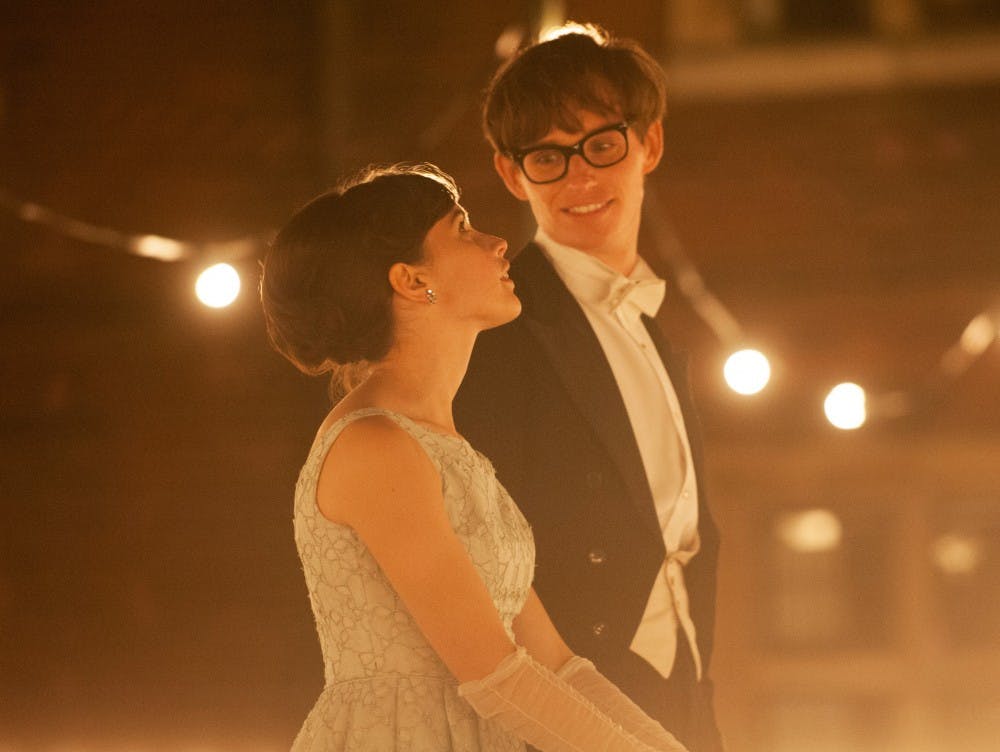Screenwriter Anthony McCarten is responsible for bringing the story of one of science’s most well-known figures to the big screen with “The Theory of Everything,” out Nov. 14. McCarten sat down with the Eagle’s Tam Sackman to discuss the writing process and some of the challenges in writing this particular story.
Eagle: How did you manage to balance the scientific achievements of Stephen Hawking with the personal ones?
Anthony McCarten: It was a judgment call. I knew that it ought to be a three-stranded story that would evenly deal with the science, the struggle against ALS and this one-of-a-kind love story. I wanted to deal with each in equal measure. And in doing so, I wanted equal balance between Stephen’s story and Jane’s story, so that it was just as much about the carer as the cared. That’s a role that is less celebrated in cinema than it ought to be.
E: What about Stephen and Jane’s story did you personally identify with? It’s difficult to write about something or someone that you have no personal connection to.
AM: When you’re dramatizing these things, you have to embody them in some way. You have to say, ‘What would she have said?’ or more, ‘What do I think she would have said in that moment? What would he have said in that moment?’ It’s a kind of emotional ventriloquism that you are making the huge presumption to speak for them in those moments of high drama. That’s where you get involved. And you hope you get it right. Always with the knowledge that the final viewer will be Jane and Stephen. That one day they will sit down and watch this and see whether you got it emotionally right, which is the key thing.
E: Is it easier to write a screenplay when you have a book to base it off of or is it constricting in some way?
AM: Well, it gives you these navigation points. So, you can either chart a course towards these or come up with alternatives. Generally, with a story like this, I was able to very much stick to historical fact and then flesh out the unknown. There was poetic license in these things. What I learned is you can invent too much with a biographical true story. But you can also invent too little, and at the end we’re not making a documentary, we’re making a feature film. You have to take some liberties. I’ve had very encouraging feedback from Jane and Stephen that those instances of poetic license serve the story and don’t do injury to the facts.
"I’ve had very encouraging feedback from Jane and Stephen that those instances of poetic license serve the story and don’t do injury to the facts."
E: How do you write for a character who is physically incapable of speaking?
AM: This was one of the real attractions to this project. That towards the end of the script I would be working with a character that could barely move any muscle and was very, very limited in the ability to talk. And yet, how do you conduct a relationship like that? That was the area of the movie that I had never seen before. It was challenging to write, but exciting to write because it’s working with silences. It’s dealing with the unsaid.
It placed a huge challenge on the actors and the director. They had to convey the freight of so much emotion without any language, which for the actor and the director is the number one tool in the toolbox and we had to take that away. That was exciting to do. To say, ‘Okay, write a whole breakup scene where there’s almost no words.’ And I think in that final breakup scene there is under 60 words. They go from celebrating a moment of marital triumph to no longer being husband and wife effectively.
E: What do you think this story is about?
AM: Reducing it down to one thing is always very challenging. If you think about it, you could say that it’s about triumph over adversity. It’s about the importance of living every moment. Stephen says at one point that if you keep an active mind, a sense of humor, anything is possible. It’s just a very heroic tale. Lives which start out just like you and I--very ordinary-- and what you can achieve with the right mental attitude.
E: Do you think the Theory of Everything will be found during our lifetime?
AM: No, I don’t. But I think it may never be found. But that’s not the point. We’re a questing animal -- it’s often the search that is the point rather than arriving at a destination. What I love in Stephen’s story is that he spent the first half of his career trying to prove a certain point and spent the second half trying to disprove it. As if the use of our intelligence is what’s important, not to what ends it’s put. Keep asking. Keep questioning. And we’re using our days well.
“The Theory of Everything” (PG-13, 123 min) will open at Landmark theaters on Nov. 14.





